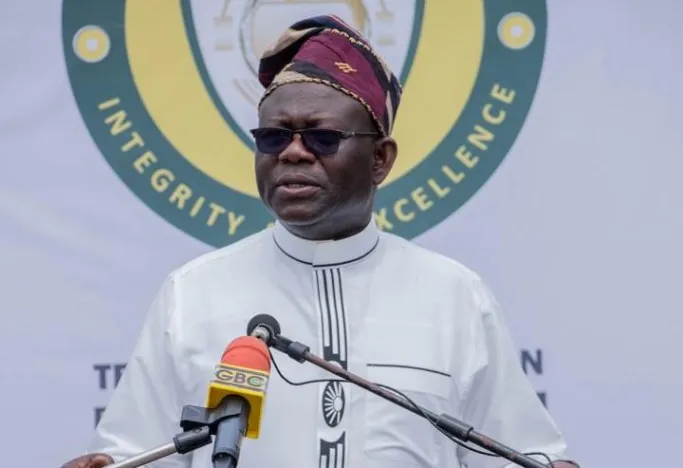The Director-General of the Ghana Broadcasting Corporation (GBC), Professor Amin Alhassan, has stated that GBC has, over the years, expected the government to provide the necessary resources for it to deliver on its mandate, but the organisation has consistently experienced a lack of support from the government.
‘’GBC over the years has expected that government will resource it to deliver, but we have seen a consistent refusal from government to resource GBC to deliver on this particular mandate’’, he said.
Speaking at the 2025 Constitutional Review Stakeholder Engagement today, the GBC Director-General highlighted the challenges the corporation faces in fulfilling its mandate due to insufficient government support. Despite its critical role in promoting Ghanaian culture, education, and national development, GBC has had to rely heavily on advertising revenue, which can compromise the quality and independence of its programming.
“The idea is not to be seen going out to do advertising to generate revenue, but Ghanaians must be given content whether there is advertising revenue or not,” he said.
Prof. Alhassan’s plea for a permanent funding solution for GBC echoes concerns raised by stakeholders in the past. The current funding model, which includes a television licence fee and advertising revenue, has proven inadequate to support the corporation’s operations. With GBC operating seven television channels and 33 radio frequencies in 25 languages, finding a sustainable funding model is crucial to its continued delivery of quality content to Ghanaians.
He also lauded the National Media Commission for fulfilling its duty of insulating GBC from government control but noted that this duty has inadvertently also insulated GBC from the government’s resource-allocative power.
“The Constitution has properly insulated GBC from government control, but accidentally, it has also insulated GBC from the resource-allocative power of government. So, my submission is that we must find a cure for the resource allocation for GBC,” the Director-General stated.
He further called for a review of the resource allocation mechanism for state-owned media and explained why the Constitution was specific about state-owned media, citing that it is the only media organisation with the mandate to ensure universality of access and diversity of content.
According to Prof. Alhassan, GBC’s mandate to ensure universality of access and diversity of content can only be fulfilled with adequate funding. He emphasized that public service media across the world are fully funded by governments, allowing them to focus on delivering quality content without relying on advertising revenue.






